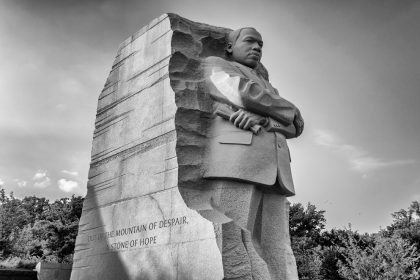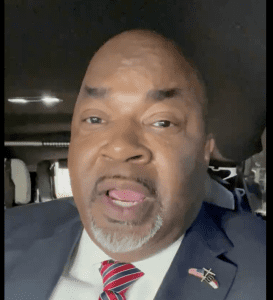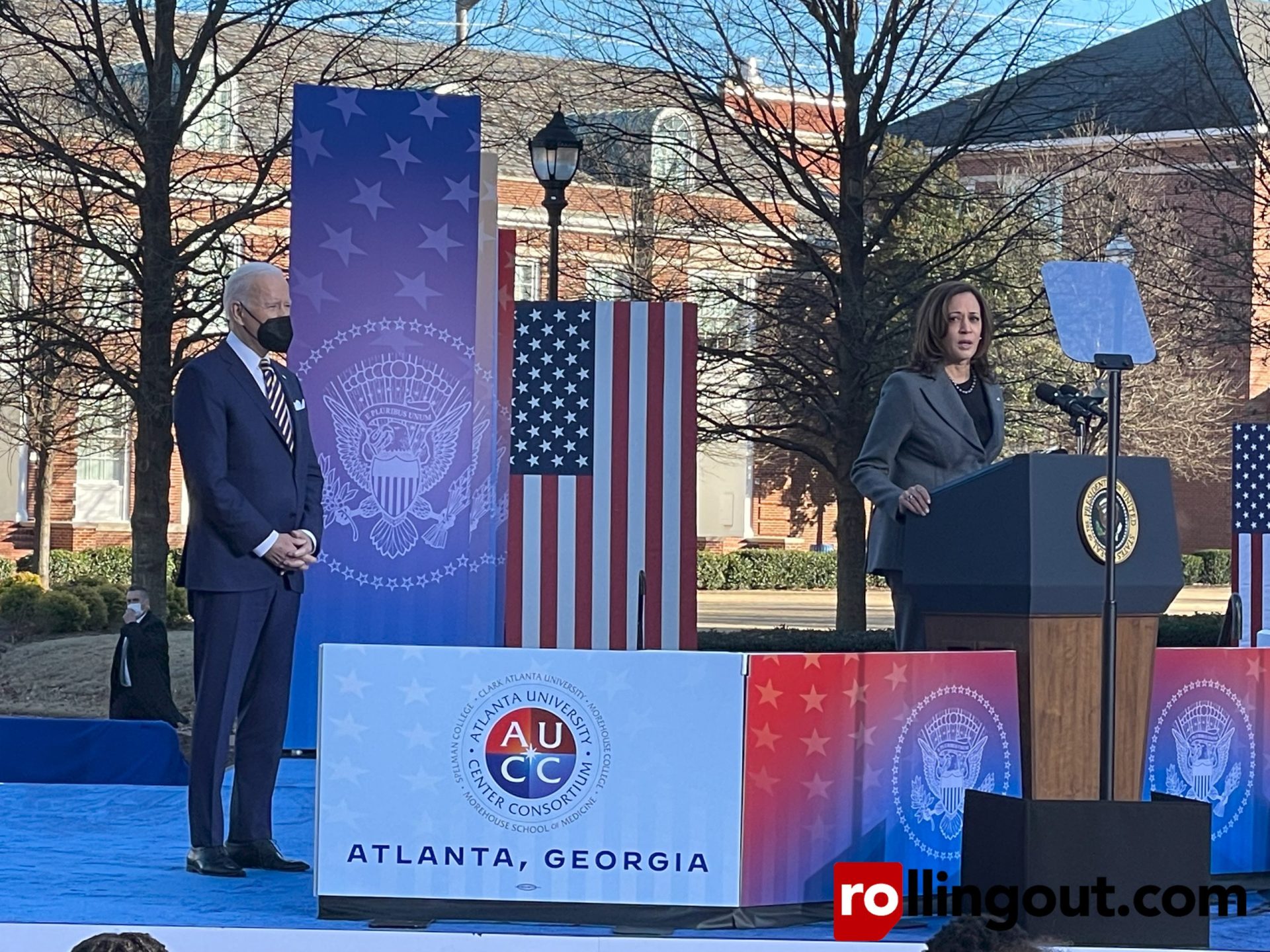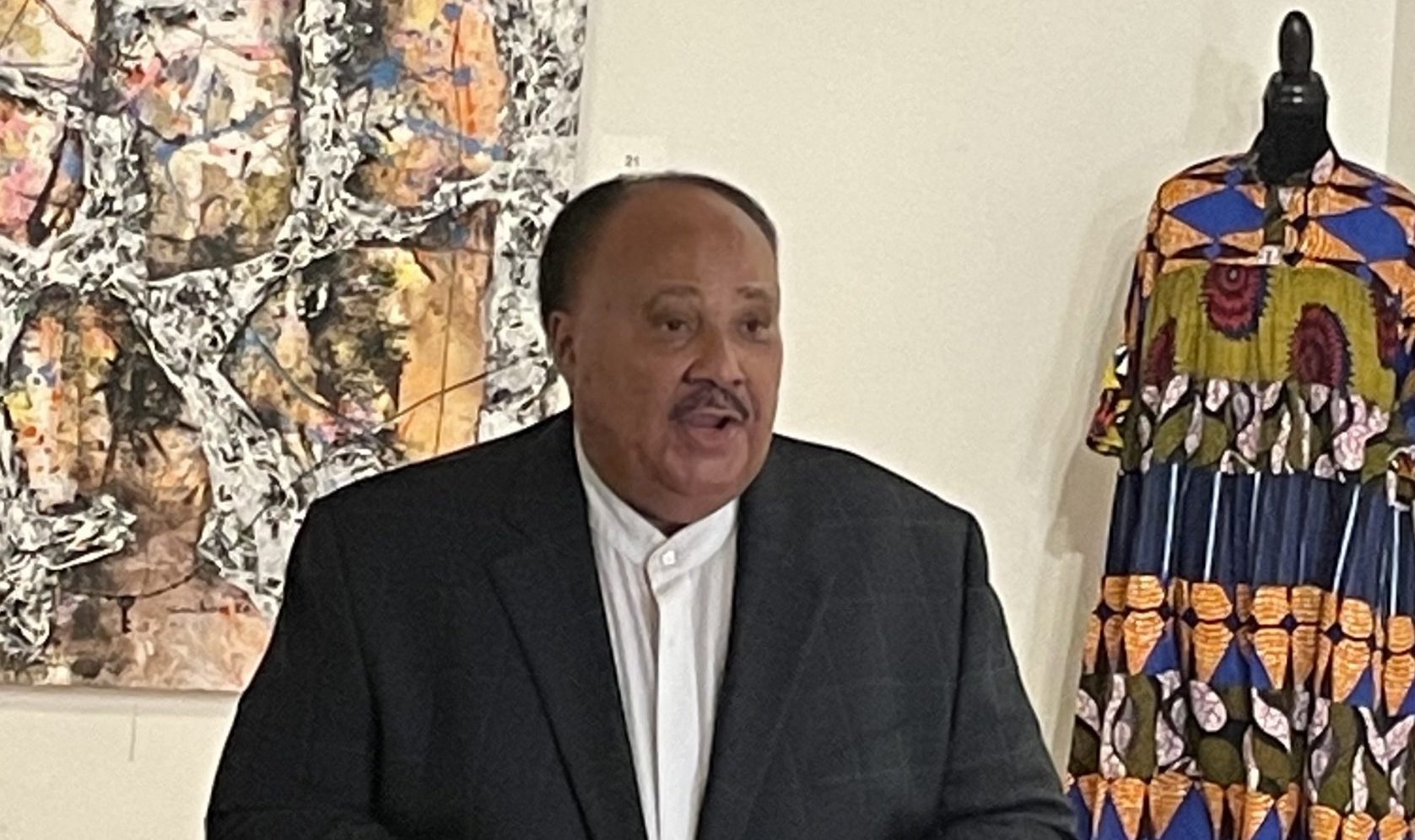 State representative Tyrone Brooks, D-Atlanta, is a walking pillar of fascinating history. Sit with this stately man for just a few moments and you understand that his mind is a vast vault that jealously guards a treasure trove of priceless, unforgettable moments during the most turbulent — albeit successful — decade of the 20th century.
State representative Tyrone Brooks, D-Atlanta, is a walking pillar of fascinating history. Sit with this stately man for just a few moments and you understand that his mind is a vast vault that jealously guards a treasure trove of priceless, unforgettable moments during the most turbulent — albeit successful — decade of the 20th century.
Brooks is also of one of the last great links (along with the likes of U.S. Rep. John Lewis, also of Atlanta) to the legendary Civil Rights Movement of the 1950s and 60s who continues to serve with verve the interest of black Americans. He had just recently joined the Southern Christian Leadership Conference as a teenager when Martin Luther King was felled by an assassin’s bullet in Memphis, Tenn., on April 4, 1968.
On April 5, 2014, Brooks, who presides over district 55 in Atlanta, will pay the ultimate homage to Dr. Martin Luther King through the campaign that King made famous — direct action nonviolent protest in the state that birthed the great leader.
The state rep, who is also the 20-year president of the Georgia Association of Black Elected Officials, plans to continue the fight to bring the perpetrators of this tragic day to justice.
“On April 5, First Africa Baptist Church in Monroe Ga. Commemorate 46th, 10th annual march on the Moore’s Ford Bridge, to call attention to the Moore’s Ford Bridge massacre — which was Dr. King’s project — also calling for arrest and prosecution of the killers who are still alive today. Many of the suspects who were involved in the massacre are still living today. And because it was on Dr. King’s agenda when he was assassinated in 1968, the SCLC veterans from years ago decided that we would have the march and rally in Monroe, Ga., on that bridge. So this our way to commemorate the death of Martin Luther King Jr., this is the only direct action.”
Brooks announced that he and other activists will began at noon at the church on at 130 Tyler Street, downtown Monroe and proceed to march on the Ford Moors Bridge.
The lynching happened in Monroe, Georgia in 1946, when two African-American couples were shot and killed near the Moore’s Ford Bridge.
“We’re going to expose federal employees who were part of the massacre and we’re going to expose the FBI cover up since 1946,” Brooks contends resolutely, passion dripping off each syllable uttered.
This rally and march is not only a continuation of Dr. King’s unfinished quest for equality, it also represents Brooks continuation of the activism that first got him noticed by the great Civil Rights leadership as a teenager more than half a century ago.
“I with other young children in the South were kind of indoctrinated and trained and recruited to work in the SCLC as students. And in my hometown of Warrington, Ga., many 14, 15, 16-year-olds we decide to emulate the work of Dr. King. We were facing segregation and unequal school systems. We picked board of education, the local theater, and that attracted the SCLC,” Brooks recalls of his adolescence. “Hosea Williams, the charismatic one, was the one who impacted me the most. I can’t describe his magic. He said ‘you children need to be in the movement’. We began to go to the academies, travel to Selma, St. Augustine, Birmingham. We grew up in that.
Brooks, who vowed as a teenager to, much like millions of other blacks, to migrate to the North to escape the Jim Crow prison they were in, was forever changed by the words of Hosea Williams to remain in the Deep South. “He said ‘we need you to come full time now,’ and in the summer of 1967 and I became full time staffer. My goal was to go north to escape segregation, but Hosea said ‘you need to stay in the South.’ ”
MLK and the SCLC had the Moore’s Ford Bridge and the Sanitation Workers in Memphis as the two main issues he was addressing before he was murdered. But King’s assassination did not break Brooks’ spirit, but only served to make him more determined to stand in and fight for basic human rights for all Americans, particularly blacks.
“The next year, Dr. King was assassinated. Ralph Abernathy brought me in from the field and into his inner circle as his special assistant and then communication director and then national field director. I was traveling with Abernathy, carrying luggage, getting the rental car, filling in for speeches when he didn’t feel like speaking. All the way up until he died in 1990. They had a greater impact than I ever imagined. I was not old enough to be in King’s inner circle. I can full appreciate what they went through, all their trials and tribulations, and what’s it’s like to live a life of civil rights.”
Brooks continues that life of civil rights through the powerful GABEO organization, which have eked out major sociopolitical victories of their own during Brooks’ two-decade tenure:
- Reapportionment and redistricting: “Cynthia McKinney and I took on that challenge in 1992. We forced the state to draw up more black districts than we ever had before in our history.”
- In 1998, we sued the state to force the state address the lack of black judges. And we won that battle with Gov. Zell Miller, agreeing to settle that out of court.
- First Reapportionment in 1981. We had to sue the state to get one majority black district in Atlanta, called the 5th district, that John Lewis has today. Lewis took over in 1986.
- We changed the state flag
And, as he prepares to hold another rally at the Moore’s Ford Bridge and to continue the work that Dr. King and other’s began — to bring the killers, who still live among us, to justice — Brooks holds the words of another iconic figure, Dr. Joseph Lowery, close to his breastplate. It is the reason he will never quit fighting for justice for African Americans:
“The struggle is forever. Don’t ever expect it to end. We are depending on you to keep going.”
















